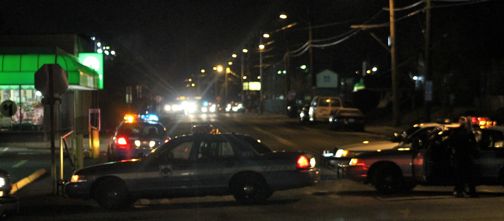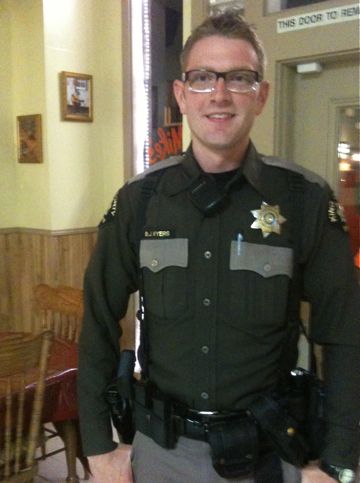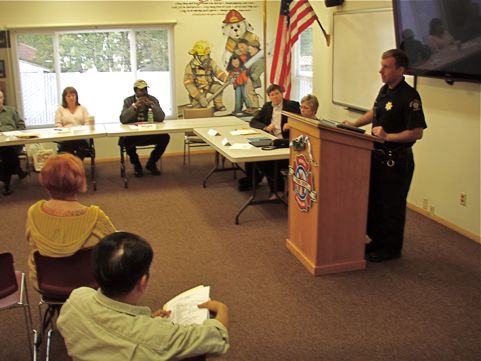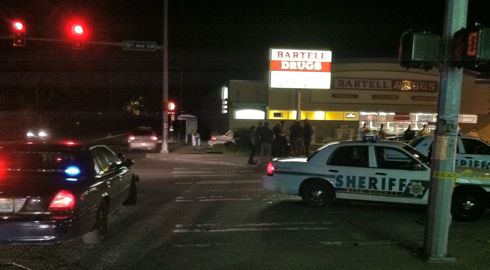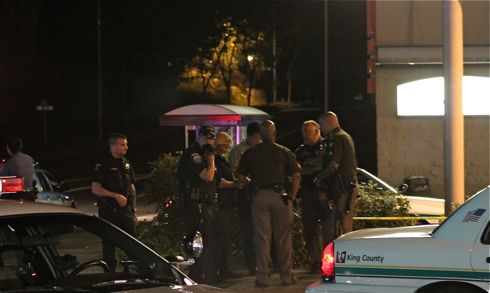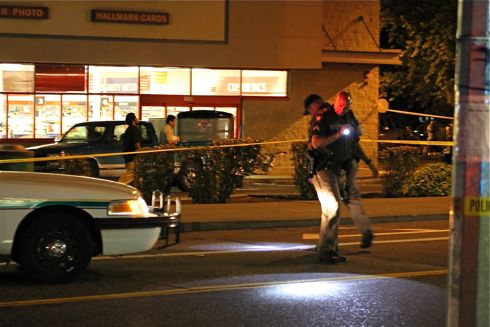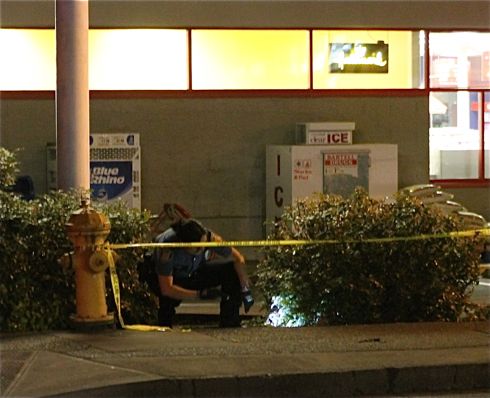The proposal requires official council approval, but he doesn’t expect that to be a problem. If this moves ahead as quickly as planned, he expects the storefront deputy to be back in place within about a month. He tells WCN that the White Center community deserves huge credit for making this possible (a “restore the deputy” petition started by the North Highline Unincorporated Area Council has been in circulation since July).
Here’s the official news release – in addition to the storefront deputy as #3 on the list, note #5, which involves nursing services for White Center:
The growth of gang violence in South King County will be targeted by a coordinated King County response of suppression, intervention, and prevention funded with $1.4 million from the Criminal Justice Reserve, under a proposal by King County Executive Dow Constantine developed in collaboration with Metropolitan King County Councilmembers and criminal justice leaders.
“The problem is emerging quickly and our actions must be swift. We cannot and we will not tolerate the criminal activities of gangs in our communities,” said Executive Constantine. “In the long run we know we cannot arrest our way out of this problem, so this proposal balances gang suppression with investments in tried and true solutions that give youth an opportunity for a healthy start, an education, and employment – known factors that reduce crime and gang involvement.”
The Council established the Criminal Justice Reserve fund as part of the 2011 budget in order to respond to emergent needs related to public safety and ensure the smooth functioning of the criminal justice system.
“Indicators that are most common in South King County– like poverty, unemployment, dropping out of school and teen pregnancy – all help to create a common denominator of hopelessness that often leads to a life of crime and violence. If we intend to effectively address these issues, we must take a closer look at how investments are made,” said Council Budget Chair Julia Patterson, whose district includes South King County. “Addressing gang violence requires law enforcement and it requires prosecution, but intervention and prevention are key pieces of the puzzle, and the Executive’s proposal calls for all of these things simultaneously.”
“We specifically set aside these funds in the 2011 budget to allow us to tackle critical criminal justice needs as they occur,” said Councilmember Kathy Lambert, Vice-Chair of the Budget and Fiscal Management Committee. “Increasing our efforts to fight gang activities in light of recent increased violence is exactly the type of situation for which this reserve was intended. By prioritizing these critical programs, we can continue to make King County family-friendly and gang-unfriendly.”
“To protect our kids and communities, we need to invest in additional resources to combat the gang violence problem,” said Councilmember Bob Ferguson, Chair of the Council’s Law, Justice, Health and Human Services Committee. “Law enforcement needs the tools necessary to combat the ongoing gang war in our region, which include prevention and intervention services that help provide better futures for our youth and prevent them from becoming involved in gangs.”
In a letter sent today to the Council, the Executive proposed $1.4 million from the Criminal Justice Reserve for seven programs that address gang issues and can be implemented quickly, starting in October and lasting through the end of 2012:
1. Expand the Prosecutor’s anti-gang unit ($456,000) by supporting a team of three deputy prosecutors and a paralegal who would focus solely on gang-related cases. The Prosecutor’s Office recently lost federal funds that were focused on prosecuting gang members.
2. Provide equipment for the Sheriff’s gang unit ($30,000), including ballistic vests, binoculars, video equipment, training and software for video enhancement, and supplies used in serving search warrants and arrest warrants.
3. Restore the “storefront” deputy in White Center ($179,000), a position in the Sheriff’s Office that was cut in 2011 following the lack of voter approval for revenues to maintain criminal justice services. Restoring the position will return proactive law enforcement to the White Center neighborhood.
4. Continue funding for the Sheriff’s Latino education outreach program ($15,000), which reaches young Latino mothers and other family members on gang prevention and keeping young children safe from gang recruitment and activity. Funding will support Spanish-language radio and TV spots, translated materials, and community and event coordination in east, south, and west King County.
5. Add two nurses to the Nurse Family Partnership Program focused on the White Center/Burien and Tukwila/SeaTac areas ($312,500). Many women in South King County are eligible for services but don’t receive them. Nurses in this very successful Public Health program connect high-risk mothers with services to improve health outcomes, resulting in demonstrably lower rates of involvement of these young women in the criminal justice system.
6. Restore two case managers for the Back to School and Employment Training Program ($309,000), which provides education and employment training for youthful offenders in South King County. Grant funding for five case managers expired earlier this year.
7. Continue funding for the Avanza project ($137,500), an education and employment training program for Latino youth at risk of dropping out of school or falling into the juvenile justice system. This program has been successful in engaging truant youth back into school and providing employment opportunities, and without the proposed funding it will shut down this fall when grant funds expire. Both this program and the Back to School and Employment Training program are managed through a partnership between King County Superior Court and the King County Work Training Program.
“I thank the Executive and members of the County Council for acting so quickly to our call for assistance. This comprehensive proposal to fund dedicated gang prosecutors is a rapid response to an escalating threat to public safety,” said Dan Satterberg, King County Prosecuting Attorney. “It will allow my office to build strong cases against the leaders of violent gangs and at the same time, fund programs for at-risk youth, so that we can offer them an alternative to the gang life.”
“The actions being taken by the Executive and the Council are a thoughtful approach to an ongoing problem, and we sincerely appreciate their working closely with the King County Sheriff’s Office,” said Sheriff Sue Rahr. “This will help our Deputies and Detectives do their jobs even better.”
“This is a well-rounded approach. Early childhood interventions, employment training and criminal justice resources will not only work to prevent violence but will also help many individuals become contributing community members,” said Councilmember Joe McDermott, who represents White Center.
“I was shocked and appalled by the shooting of 13 people in Kent recently. The incident started a gang war in South King County that is a very serious problem,” said Councilmember Reagan Dunn. “These resources are desperately needed to respond quickly and forcefully. This kind of violence will not be tolerated in our communities. I applaud the leadership of Prosecutor Satterberg for raising the issue and to my colleagues for acting decisively.”
“South King County has become a battleground for some gangs from other areas of the Puget Sound region,” said Councilmember Pete von Reichbauer. “We must present a unified front – urban, suburban and rural – to fight this growing problem.”
“Responding to the rising threat of gang violence is critical to protecting the safety of King County residents,” said Councilmember Larry Phillips. “This is the best use of the criminal justice reserve that the Council set aside for this type of emergency.”
“Gang violence affects our entire community, not just South King County,” said Council Vice Chair Jane Hague. “Programs like these give us the tools necessary to combat gang violence and provide positive opportunities for at-risk young people.”
Gang-related violence has increased over the past three years, according to the Prosecutor and Sheriff:
In 2008 and 2009 combined, King County had 29 gang-related homicides and 200 reported gang-related shootings.
As many as 10,000 gang members are estimated to live in the county, as part of an estimated 140 active criminal street gangs.
Crime related to gang activity has increased 165 percent since 2005, with some of the growth occurring in South King County.
The Council’s Budget and Fiscal Management Committee will discuss the anti-gang funding proposal at its meeting tomorrow (Wednesday), with Council action possible in early September.


